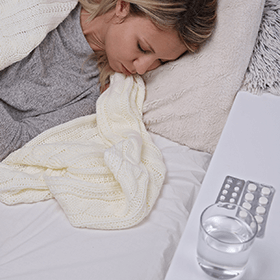By Dr Tom Micklewright
How to Prevent a UTI
What is a UTI?
Urinary tract infections (UTIs) are caused when bacteria enters the urinary tract and causes an infection. The three main types of infection that the term 'UTI' is used to describe are as follows:
- Cystitis, an infection of the bladder. Symptoms include frequent, painful urination, blood in the urine and feelings of pressure and discomfort in the pelvis and lower abdomen.
- Urethritis, an infection of the urethra. Symptoms include a burning sensation when urinating, and discharge from the vulva or penis.
- Pyelonephritis, an infection in the kidneys. Symptoms include high fever, nausea, pain in the upper back and sides of the body.
Who is at risk of a UTI?
Urinary tract infections are particularly common in women, with many women experiencing more than one UTI through the normal course of living. UTIs are relatively uncommon in men below the age of 50, though urethritis is more common in men than women. With this in mind, what factors put you most at risk of contracting a UTI?
- Pregnancy
- Old age
- Being menopausal
- Being sexually active or having a new sexual partner
- Being born with an abnormal urinary tract
- The use of birth control methods like a contraceptive diaphragm or spermicidal agent
- Conditions blocking the urinary tract (e.g. kidney stones)
- Conditions that make it difficult to fully empty the bladder (e.g. an enlarged prostate)
- Having a urinary catheter in place, or having had one in place recently
- Having a weakened immune system (e.g. from type-2 diabetes, chemotherapy or HIV)
- Having had a UTI previously
How can I prevent contracting a UTI?
UTI prevention is about preventing harmful bacteria from entering the urinary tract. Getting into the following habits will significantly reduce your risk of contracting a UTI:
- Cleaning your genitals before and after sex. Avoid harsh or strongly scented cleansing agents that might inflame the urethra, instead opting for warm water and a plain, benign soap.
- Urinating immediately after sex. Don't fight the urge to urinate after sex, doing so flushes bacteria and microbes out of the urinary tract with little effort on your part.
- Staying hydrated and not holding it in. Encourage the regular flushing of the urinary tract by staying hydrated, drinking 6-8 glasses of water a day and emptying your bladder as soon as you feel the need.
- Wiping from the front. Regularly washing your rectum is one side of this, the other is getting into the habit of wiping from your genitals back towards your buttocks to avoid bringing anal bacteria forwards.
- Using the right condoms. Spermicide-treated condoms can trigger vaginal inflammation, unlubricated condoms can stress vaginal tissues, and flavoured condoms use sugars that promote bacterial growth avoid at all costs, favouring traditional, lubricated condoms instead.
- Avoiding the use of a diaphragm. Particularly if you have been prone to UTI infections in the past. Unlike the pill or condoms, diaphragms have been known to promote the growth of E. coli a bacterium responsible for 85-90% of UTIs.
- Wearing clean, breathable underwear. Synthetic fabrics trap in moisture, creating fertile ground for the growth of bacteria.
Most popular
Related articles

13 Ways to Combat Recurrent UTIs

UTI Symptoms After Sex